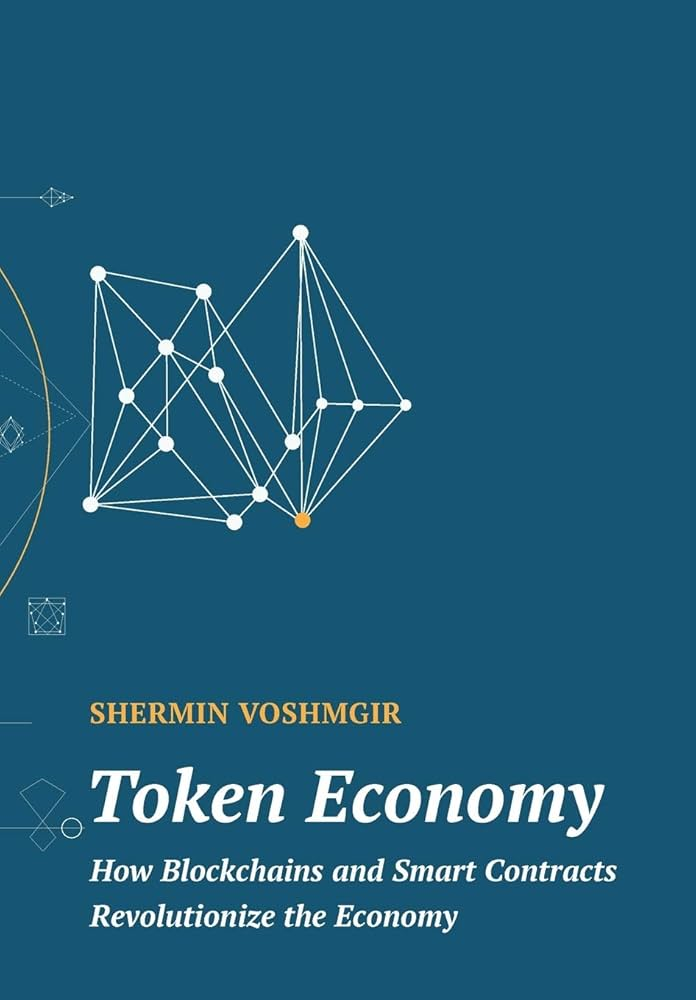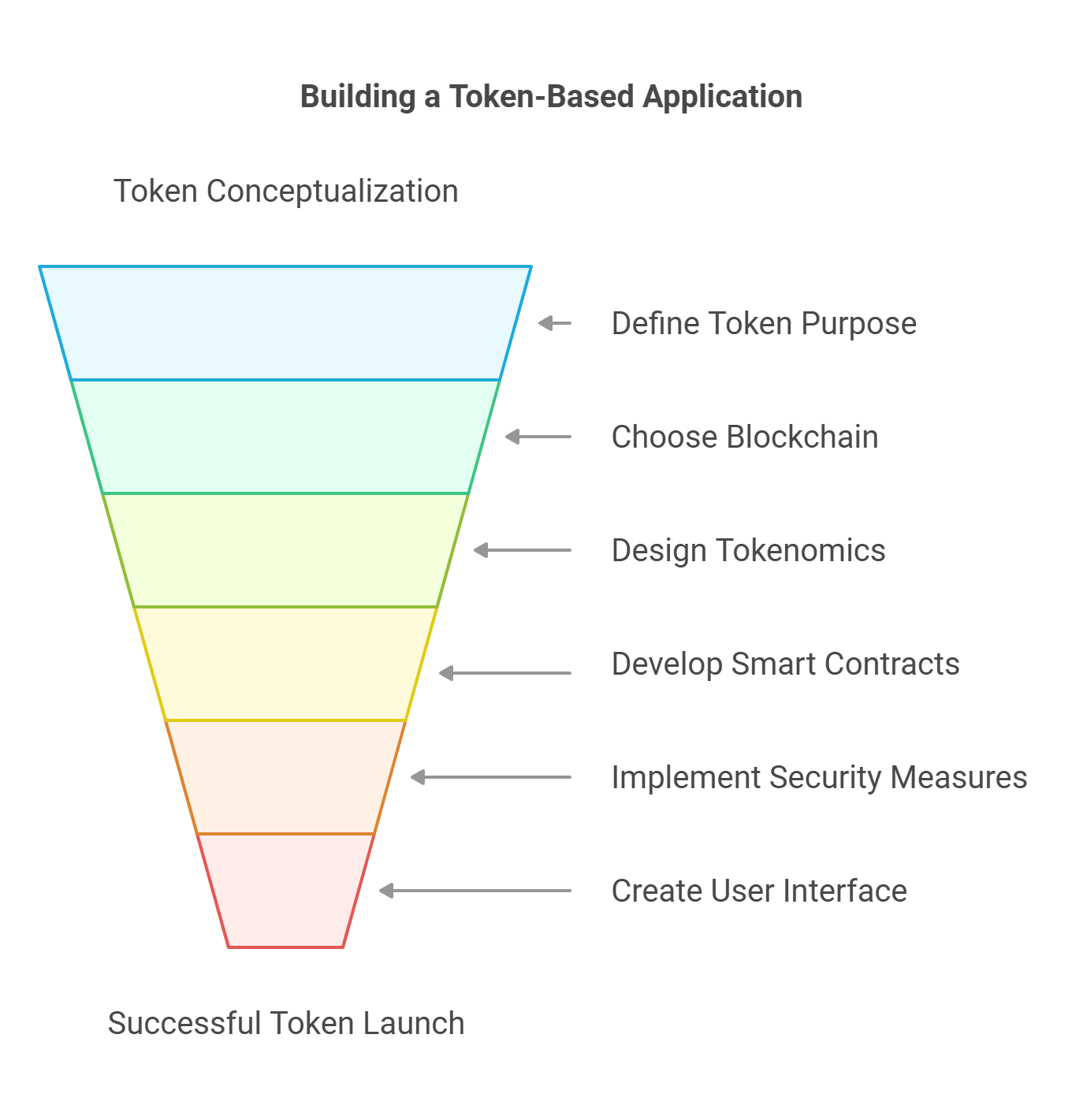- Published on
Unlocking the Power of Smart Contracts for Custom Token Economics
- Authors

- Name
- Adil ABBADI
Introduction
The rise of blockchain technology has given birth to a new era of decentralized economies, where tokens and cryptocurrencies play a crucial role. At the heart of this revolution lies the concept of token economics, which involves the design and implementation of custom tokens that serve specific purposes within a decentralized system. However, the true potential of token economics can only be unlocked with the help of smart contracts. In this article, we'll delve into the world of smart contracts and explore their role in creating custom token economics that redefine the boundaries of decentralized systems.

- Designing Custom Token Economics with Smart Contracts
- Implementing Tokenomics with Smart Contracts
- Use Cases for Custom Token Economics
- Conclusion
- Dive Deeper into Custom Token Economics
Designing Custom Token Economics with Smart Contracts
Smart contracts are self-executing programs that automate specific rules and regulations within a blockchain network. By leveraging smart contracts, developers can create custom token economics that cater to the unique needs of their decentralized applications. The beauty of smart contracts lies in their ability to execute predefined rules without the need for intermediaries, ensuring transparency, security, and efficiency.
pragma solidity ^0.8.0;
contract CustomToken {
address private owner;
uint public totalSupply;
constructor() {
owner = msg.sender;
totalSupply = 1000000;
}
function mint(address _recipient, uint _amount) public {
require(msg.sender == owner, "Only the owner can mint tokens");
totalSupply += _amount;
balances[_recipient] += _amount;
}
function burn(uint _amount) public {
require(balances[msg.sender] >= _amount, "Insufficient balance");
totalSupply -= _amount;
balances[msg.sender] -= _amount;
}
}
The above code snippet demonstrates a basic custom token contract written in Solidity. This contract allows the owner to mint and burn tokens, ensuring complete control over the token supply.
Implementing Tokenomics with Smart Contracts
Tokenomics involves the study of thetoken economy, including the creation, distribution, and management of tokens. Smart contracts play a vital role in implementing tokenomics by enabling the automation of token-related processes. By incorporating smart contracts into their tokenomics strategy, developers can ensure:
- Token creation and distribution: Smart contracts can be used to create and distribute tokens according to predefined rules, ensuring transparency and fairness.
- Token pricing and valuation: Smart contracts can automate token pricing and valuation mechanisms, taking into account factors such as supply and demand.
- Token governance: Smart contracts can facilitate decentralized decision-making, allowing token holders to vote on proposals and shape the future of the token economy.

Use Cases for Custom Token Economics
The possibilities for custom token economics are endless, and smart contracts have opened up a world of opportunities for innovative use cases. Some examples include:
- Tokenized assets: Smart contracts can be used to create tokenized representations of real-world assets, such as stocks, bonds, and commodities.
- Decentralized finance (DeFi): Custom tokens can be used to create decentralized lending platforms, yield farming protocols, and other DeFi applications.
- Gaming and NFTs: Smart contracts can be used to create unique gaming experiences, such as token-based rewards systems and NFT marketplaces.
pragma solidity ^0.8.0;
contract GamingToken {
address private owner;
uint public totalSupply;
mapping(address => uint) public balances;
constructor() {
owner = msg.sender;
totalSupply = 1000000;
}
function rewardPlayer(address _player, uint _amount) public {
require(msg.sender == owner, "Only the owner can reward players");
balances[_player] += _amount;
totalSupply += _amount;
}
function redeemReward(address _player, uint _amount) public {
require(balances[_player] >= _amount, "Insufficient balance");
balances[_player] -= _amount;
totalSupply -= _amount;
}
}
The above code snippet demonstrates a gaming token contract that rewards players with tokens and allows them to redeem rewards.
Conclusion
Smart contracts have revolutionized the world of token economics, enabling developers to create custom token economies that cater to their unique needs. By leveraging smart contracts, developers can unlock the true potential of tokenized assets, decentralized finance, and gaming applications. As the blockchain ecosystem continues to evolve, the importance of smart contracts in shaping the future of token economics will only grow.
Dive Deeper into Custom Token Economics
Explore the vast possibilities of custom token economics and discover how smart contracts can help you unlock new opportunities in the world of decentralized systems.
